Beyond Exhaustion: How Life Changes with Fatigue
Fatigue: It’s not “just being tired”, and it’s an experience that individuals living with a chronic health condition know all too well. Fatigue can impact every aspect of daily life, whether the fatigue is a symptom of another health condition, a side effect of treatment, or a medical issue of its own. To better understand the true impacts of fatigue, we asked more than 2,500 people living with chronic health conditions to share their experiences.
What does fatigue really look like?
Fatigue plays a big role in life with a chronic health condition, whether a person is dealing with migraine, COPD, endometriosis, or cancer. Across different health conditions, fatigue is a common experience. In fact, nearly all patients have experienced fatigue over the past week. But what’s causing that fatigue? 6 in 10 survey takers faulted their current health condition(s), while 5 in 10 said that unrestful sleep or pain contributes to or causes their fatigue.
Fatigue can take an emotional toll
Many of our community members have been dealing with the impacts of fatigue for many years. In fact, 24 percent have been coping with fatigue for 2-5 years, and 48 percent have been dealing with fatigue for 5 years or more. 4 in 10 say that their fatigue has gotten worse over time.
False assumptions about life with fatigue
For many, questions like “Oh, you’re just tired?” and statements like “Well, I’m tired too” can be the most frustrating aspects of coping with fatigue. For people who don’t live with chronic health conditions, it's easy to downplay or misinterpret the true impact of fatigue. As a result, many of our survey takers are faced with false assumptions about fatigue, making it that much harder when fatigue strikes.
Feeling comfortable talking about fatigue
Fatgue is difficult to explain and control
Even though fatigue can complicate so many aspects of life, it’s also incredibly difficult to control. While community members have tried a wide range of prescription and over-the-counter medications, alternative therapies, and lifestyle changes to improve sleep and reduce fatigue, only 7 percent feel like their fatigue is well-managed.
It’s important to feel heard and understood
So, why is it so difficult to control fatigue? According to our community members, it may come down to the patient-healthcare provider relationship. When asked about speaking to their healthcare provider (HCP), our community members identified some gaps. Sadly, many patients feel like their healthcare provider (HCP) isn’t regularly discussing or addressing their fatigue, with only 20 percent* saying that their doctor works with them to develop a treatment plan that effectively manages fatigue. And, only 32 percent* say that they are in agreement with their doctor about the level of fatigue they experience. If patients can’t talk to their doctors about fatigue, what’s it like to try to talk to family members, friends, and coworkers who don’t have fatigue?
*Top 2 box on 7-point scale
Remember you are not alone
While there’s no denying that fatigue changes so much of daily life, it can be helpful to know that you are not alone. No matter what chronic health condition (or conditions) you face, there are many other community members who understand that fatigue goes beyond exhaustion.
Tell us more about what your life looks like while managing fatigue by commenting below.
The 2020 Fatigue & Health Survey was conducted online from March through May of 2020.
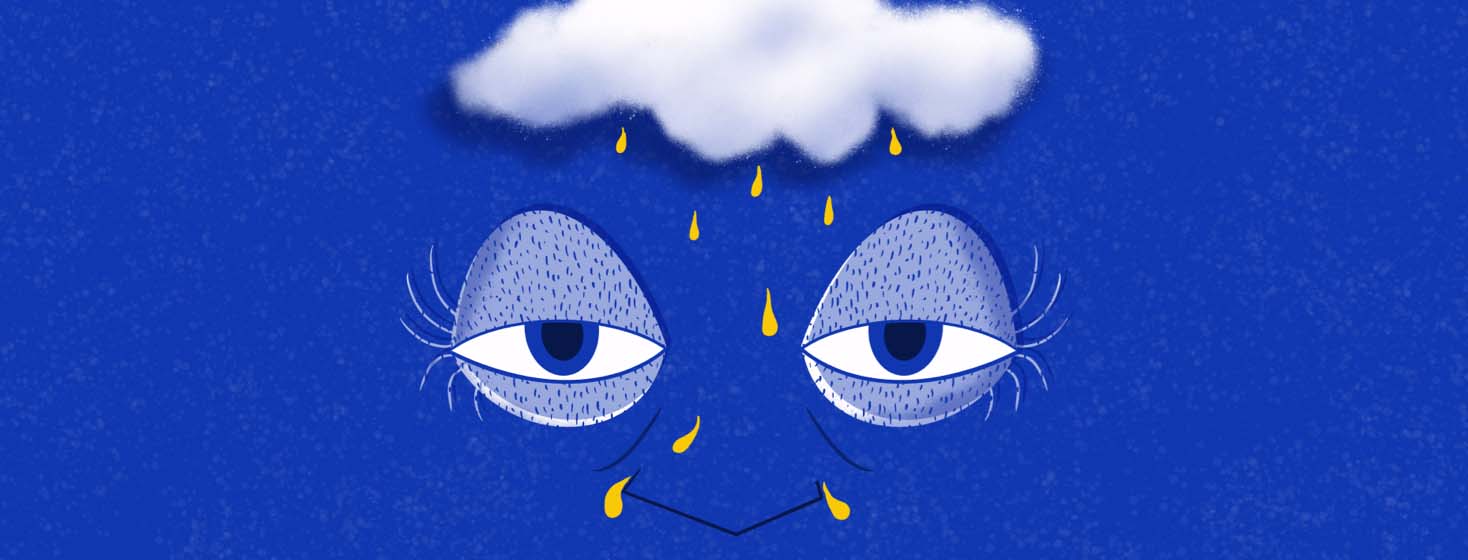
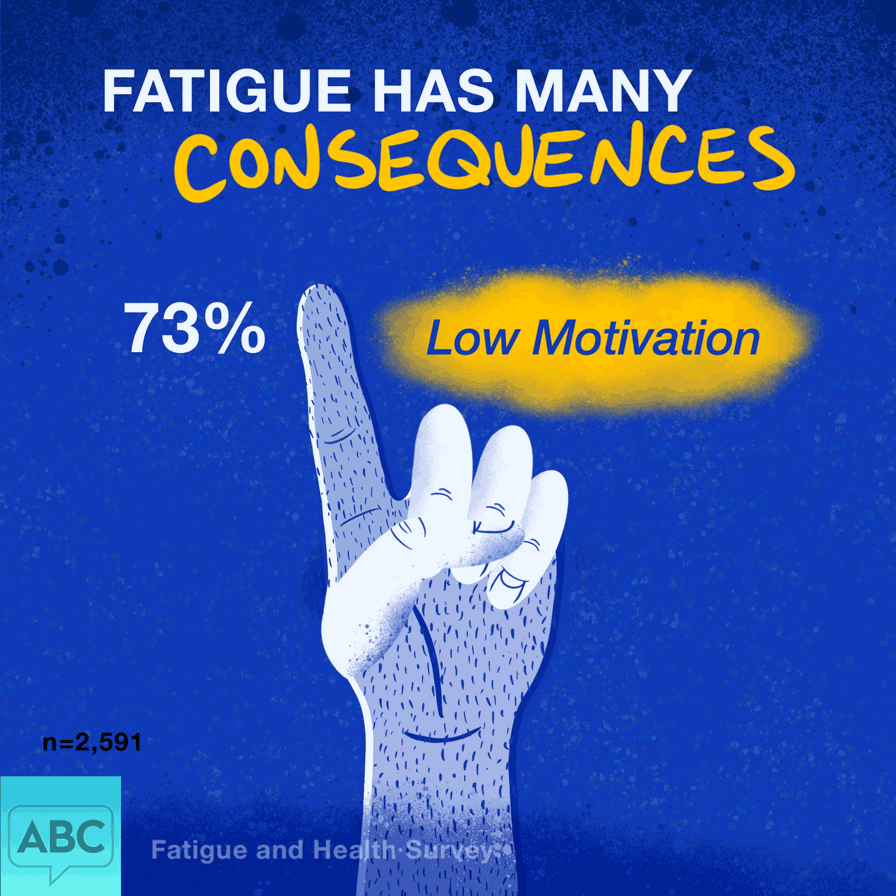
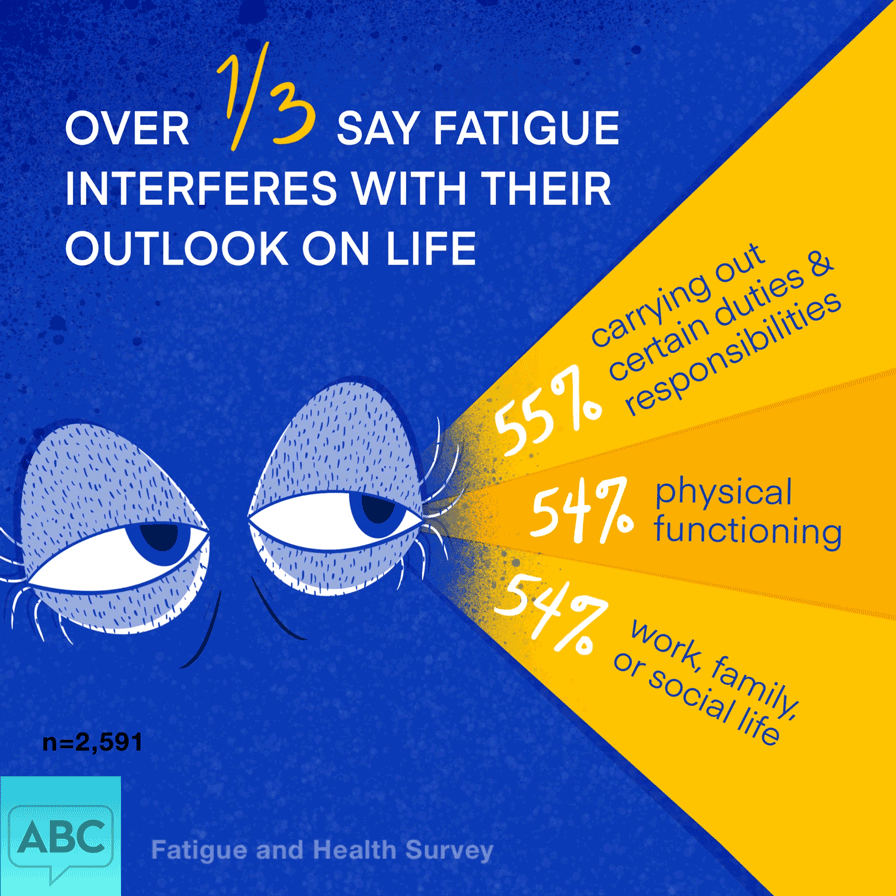
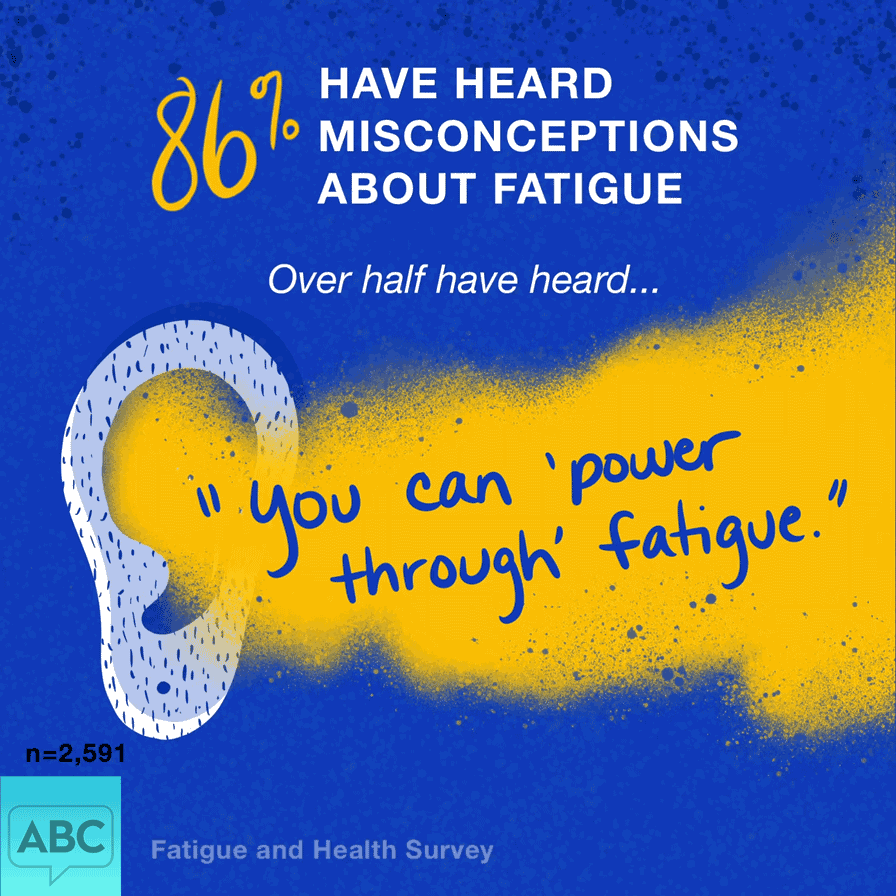
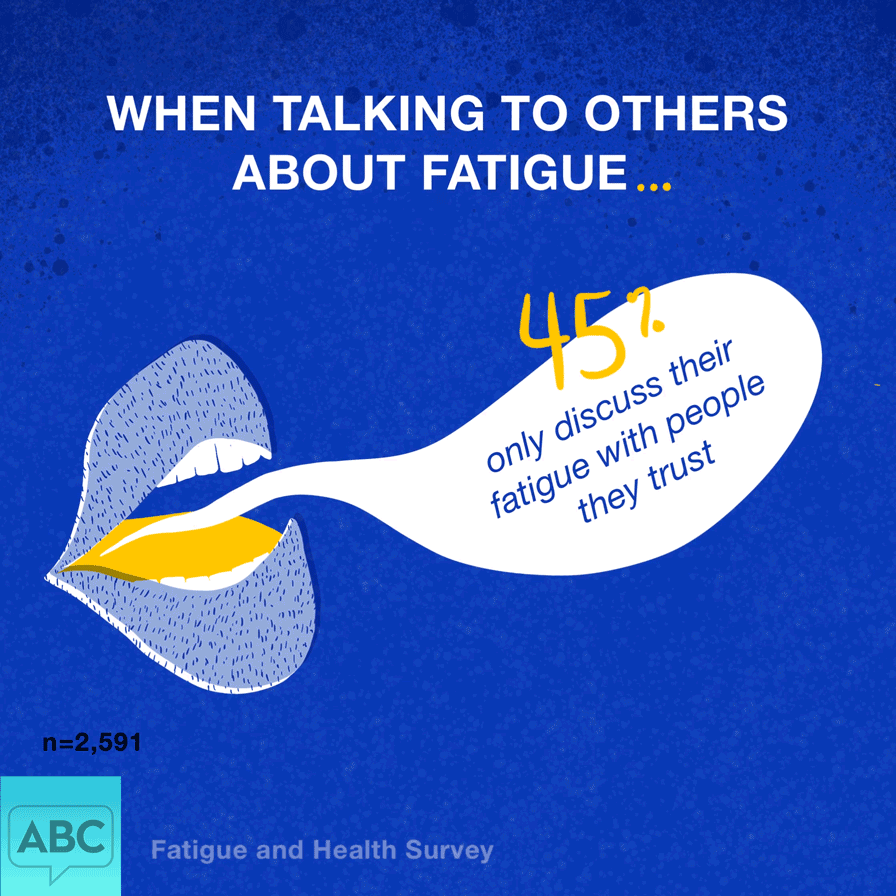
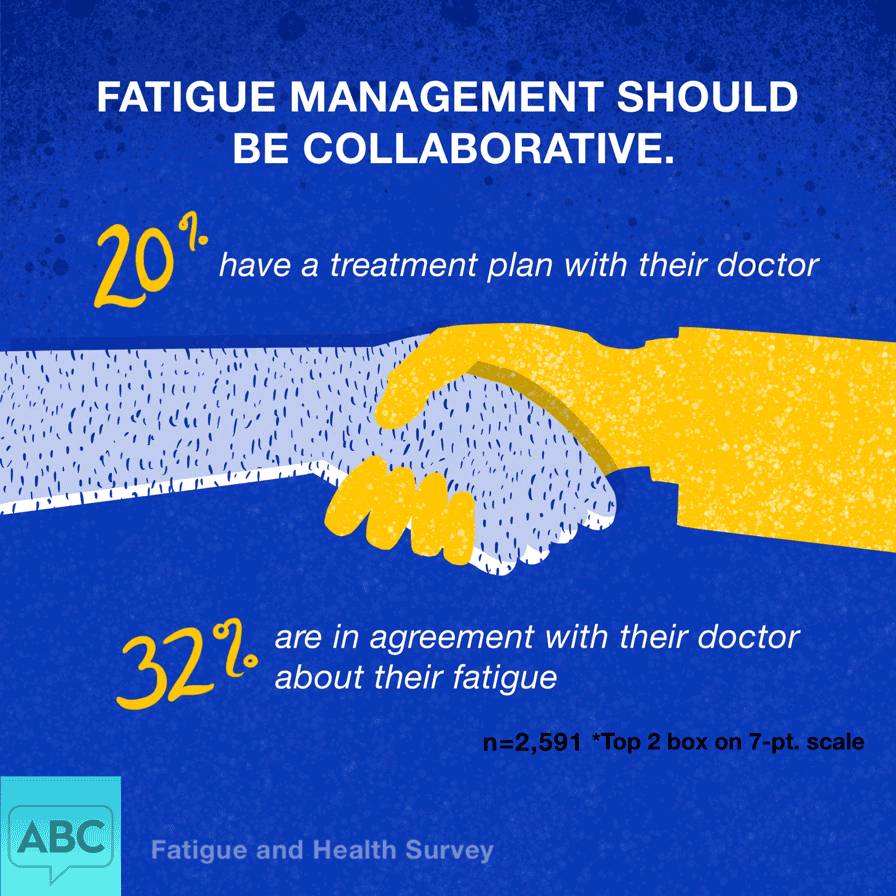
Join the conversation